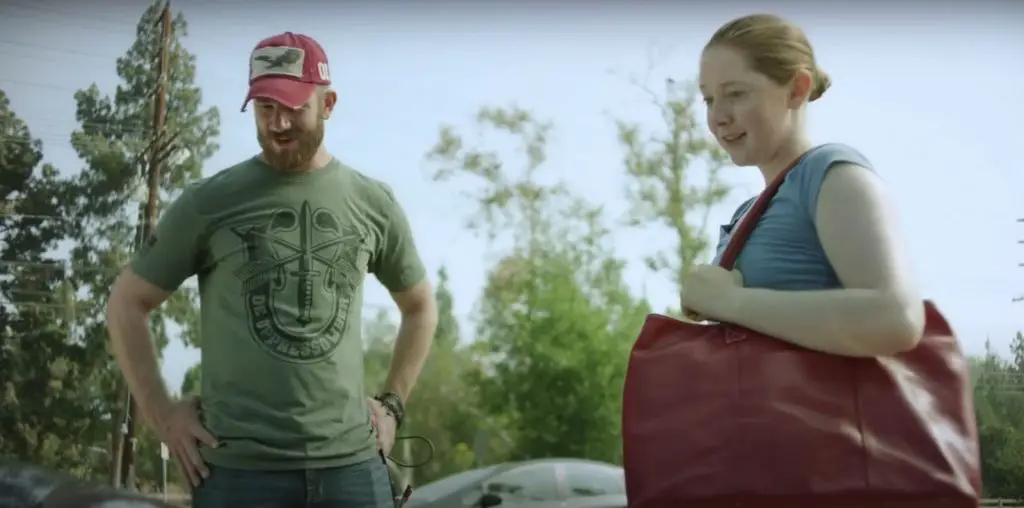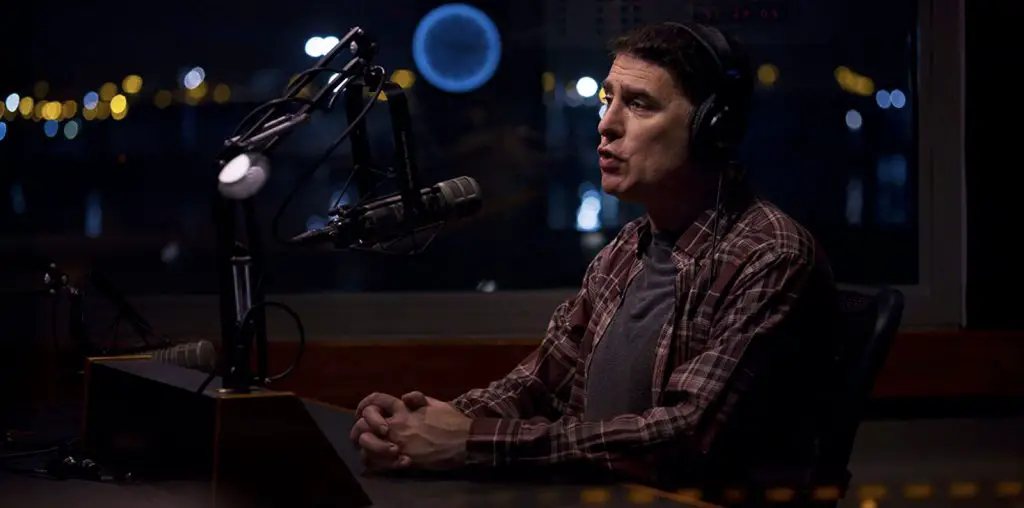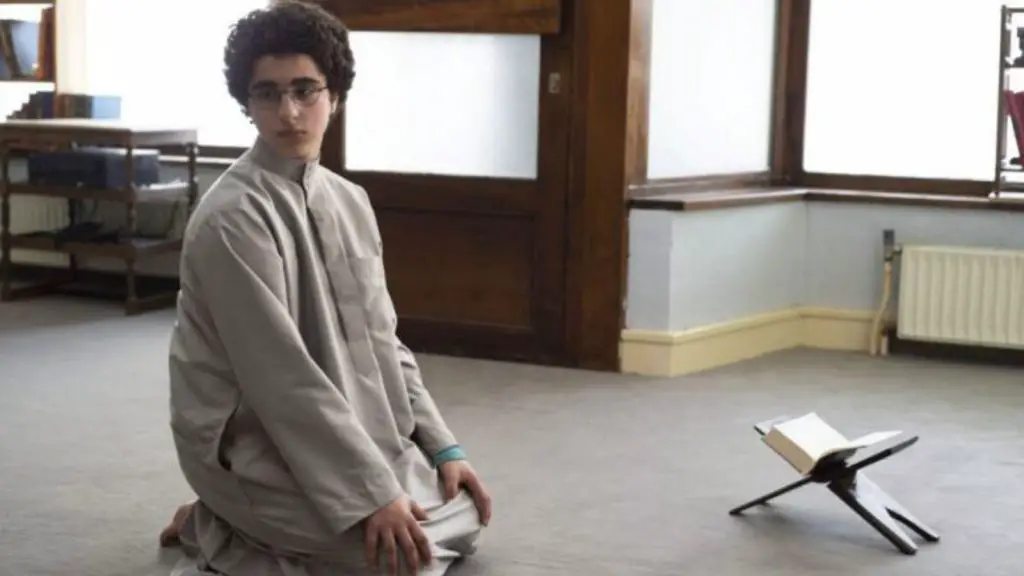
It’s not the first time I’ve ever uttered the words, “Our country is divided.” We’re so divided in that we do not simply disagree with one another, we’re bunkered in. “I’m right. You’re evil!” Rather than finding common ground, we’re standing firm in our beliefs…with unintended consequences. Samrat Chakrabarti and Matt Gaetano Levin explore these consequences in their short film, The Interning.
The story centers on Greg (Matt Gaetano Levin), who works in a typical office. Greg sits motionless in his cubicle chair, despondent to the point of burn out. President Trump’s travel ban is blaring on the news. While heading off to the break room, co-workers are debating just how bad the president’s been to the country, while another group covers #MeToo and #BLM.
Greg eventually succumbs the worst of his “white insecurity” and lost inside himself without a filter. His self-induced trauma leaves him shellshocked. Is there any hope for Greg? Can he/should he find peace?
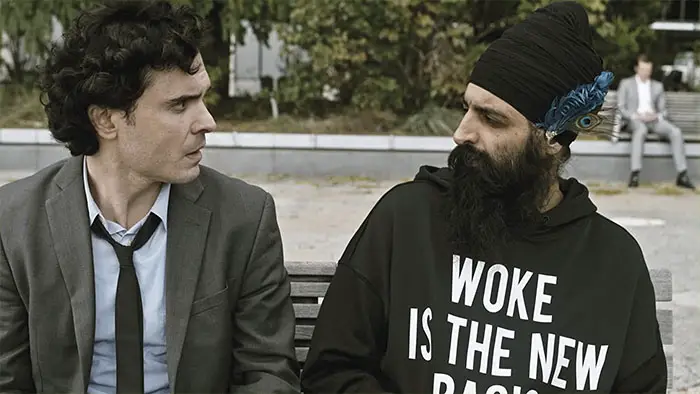
“…succumbs the worst of his ‘white insecurity’ and lost inside himself without a filter…”
Politics, news, social media has either turned us into people screaming into echo chambers or unplugging ourselves from the grid, retreating from life—longing for the days when our friends once posted annoying pictures of their dinner. The Interning captures the life of the latter and effectively gets its point across. It might not be the PC-thing to empathize with an insecure white guy, but why do labels matter so much. Why not empathize with a person and wish him or her peace. With this conceit enters a mysterious Sikh gentleman (Samrat Chakrabarti) wearing a “woke is the new black” t-shirt.
My only issue with the short is the acting from its supporting characters. It’s not that they’re terrible, but the dialogue feels scripted and could have benefited from more rehearsals to convey more natural-sounding conversations. Fortunately, this dialogue accounts for only a small portion of the short film.
Overall, The Interning does a good job capturing the emotions the filmmakers intended with their story, particularly with Greg’s mental state spiraling out of control. Simple camera tricks are employed to convey his tragic reality.
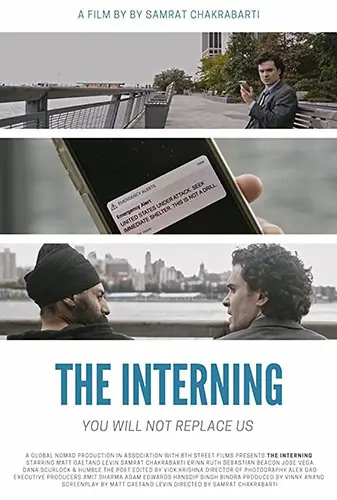
"…his self-induced trauma leaves him shellshocked. Is there any hope for Greg?"
